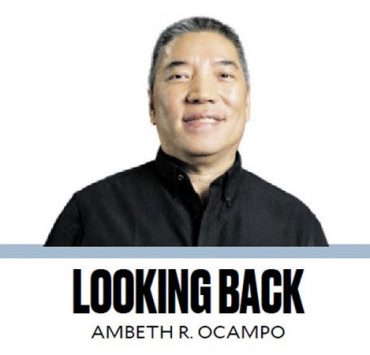The need to practice intrinsic motivation or internal locus of control

The article last week encouraging us to revisit the critical role of foundational institutions in shaping our values, particularly the “destructive tendencies,” is an excellent idea and long overdue. This should be given urgency and focus by our social system. In particular, the major contributory factors reinforcing this complex human behavior and the extent it has affected our society or if it has reached a level considered as our “dominant culture” pertaining to the majority of our population.
To support this idea, the 2018 Program for International Student Assessment (PISA), which included supplementary questions, showed that our students from a certain age group have a high percentage of awareness of “bullying” as compared to a lower percentage of awareness of “growth mindset” or a proactive mindset to develop ourselves. This magnifies the stereotype haunting our society with the sense of decline of our “good morals and right conduct.” To support this idea, the 1990 Moral Recovery Program explains that the strengths of our values if used inappropriately are also our weaknesses.
Some of the most likely factors that unfavorably affect our values and behavior are our negative personal views and interests, the intent to discredit others to evade our shortcomings or weaknesses, and the influence of our environment and/or culture. The sociocultural learning theory by Lev Vygotsky, a Russian psychologist, mentioned that our values or how we behave are developed by the time we are 10 years old.
Good news! There are several very interesting ways to improve our values and behavior, including our cognition or how we think and our psychomotor capabilities or how we move at any age. Among the overlooked examples are the stories made by the Greeks and their elders for their young to also model positive values and behavior. These were studied and written by Hannah Arendt or Johannah Stern, a German-American historian and philosopher.
The 1993 World Bank report also mentioned that we continuously learn from formal education in schools and universities, daily life experiences that are absorbed through our senses (as explained by Robert Slavin who has extensive research on Education), and from those we learn from international companies or other countries (transfer of technology or those referring to ideas and capabilities).
However, the most powerful way of improving ourselves is simply practicing intrinsic motivation or internal locus of control. This way of improving our values, behavior, and other capabilities is practiced by motivating and inspiring ourselves to take the initiative or make the effort to improve without anyone telling us what to do or being influenced by others. The significant impacts of this idea are now applied in other disciplines or areas using the terms self-regulated or self-directed.
The ability to discern or determine what is good and right an element to develop positive values and behavior is strengthened by searching, reading, understanding, and validating ideas and is mostly developed by practicing intrinsic motivation or internal locus of control. As a result, we grow and develop through our own initiative the characteristics of behaving properly, finesse, refinements, courteousness, kindness, communicating with respect, and openness or flexibility with the ideas of others.
Thus, an excellent way to improve our values and behavior aside from the initiatives by our social system as well as develop how to discern is a sustained conscious effort to transcend to positive values and behavior through our practice of intrinsic motivation or internal locus of control.
Raymund Sisenando R. Mercado
raymund_mercado@yahoo.com

















